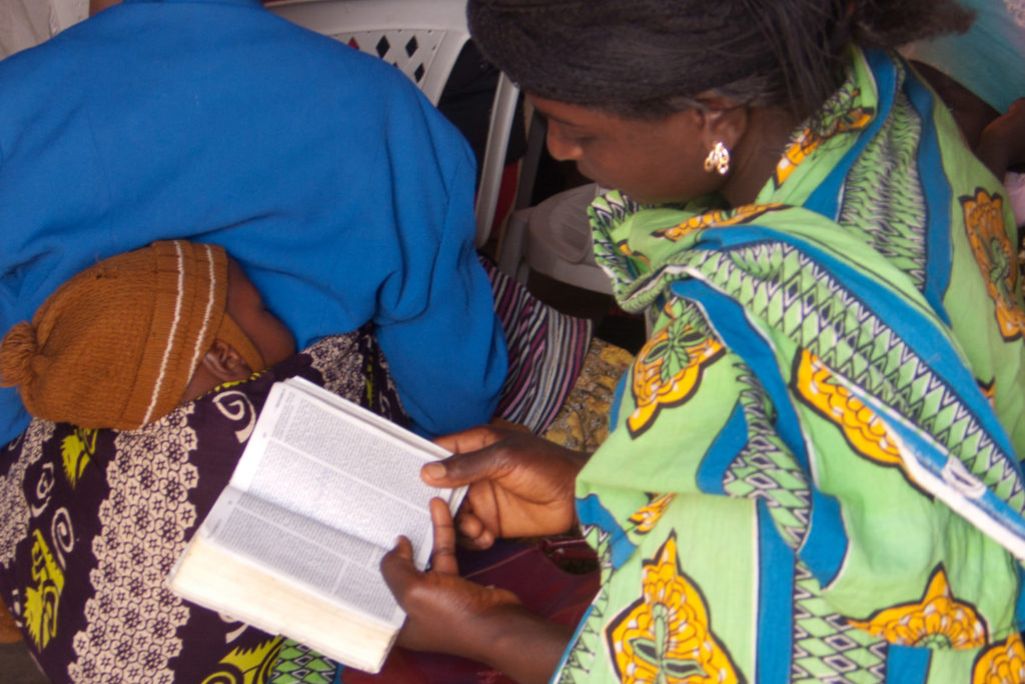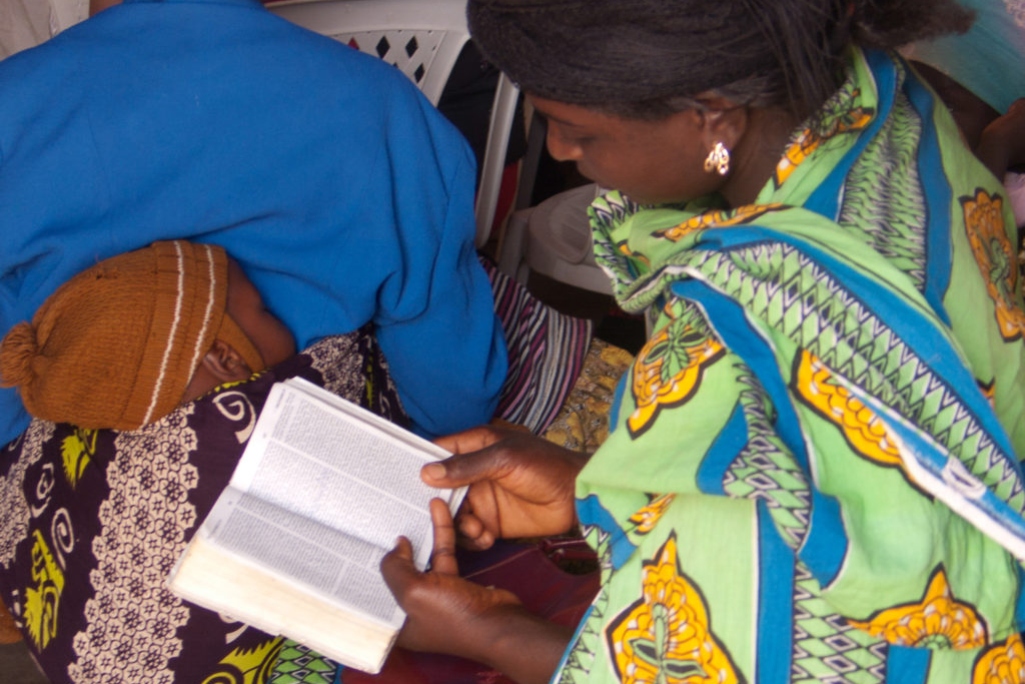
Nigeria, the most dangerous country for Christians, is not listed as a Country of Particular Concern in the U.S. State Department's most recent list. In this file photo, a Nigerian Christian reads the Bible.
WASHINGTON (BP) — Tagging and sanctioning egregious violators of the 1998 International Religious Freedom Act (IRFA) has not been effective in improving religious freedom globally, according to a study of the process.
The U.S. Commission on International Religious Freedom (USCIRF), created with the passage of IRFA, announced the findings Sept. 6, naming only Vietnam and Uzbekistan as examples of significant progress in the Countries of Particular Concern (CPC) designation and its accompanying sanctions.
“Based on key informant interviews and document and discourse analysis, the report finds that while IRFA has elevated the promotion of religious freedom abroad as a U.S. foreign policy priority and galvanized a global effort to advance this fundamental human right,” USCIRF said, “the CPC mechanism has been more effective at condemning violations of religious freedom than at encouraging foreign governments to change policy.”
In the subsequent years since IRFA’s passage, U.S. secretaries of state have issued 19 rounds of CPC designations naming 17 counties as CPCs 164 times, USCIRF said in its report. While the U.S. issued sanctions in 67.7% of cases, only on three occasions was a binding agreement secured or pursued. Also on three occasions, or in 1.8% of cases — all in one country — were new sanctions enforced explicitly because of a CPC designation, USCIRF said in its analysis. On seven occasions — in 4.3% of cases — waivers were granted to further the purposes of IRFA.
“Too often, the application of IRFA has failed to produce genuine change to advance religious freedom,” USCIRF said. “The repeated use of sanctions waivers backed by vague justifications and the repurposed application of preexisting sanctions dilute the effectiveness of the CPC designation.”
Only in Vietnam was a binding agreement secured, both in 2004 and 2005, and only in Uzbekistan was a binding agreement pursued, in 2006. Only on three occasions in Eritrea were new sanctions enforced explicitly because of a CPC designation, USCIRF found.
USCIRF also noted IRFA’s vagueness in defining an egregious religious freedom violation that would necessitate a CPC designation or a Special Watch List (SWL) designation, pointing out Nigeria and Iraq as examples. But USCIRF and the State Department have also disagreed on whether other countries, such as India, should be designated as CPCs. Nigeria in particular, the most dangerous country for Christians, is not a designated CPC by the State Department, despite USCIRF recommending the designation.
“The Wolf Act did not specifically define or provide examples of severe violations. Neither the annual IRF (International Religious Freedom) report nor the State Department’s annual CPC and SWL designations delineate which specific violations have been deemed particularly severe or severe,” USCIRF said. “As a result, it can be difficult for observers to discern the differences between the two standards and levels of designations.”
USCIRF recommended several steps the State Department and Congress should take to improve the track record. Among them, the State Department should:
- Develop a clear action plan for engagement with each CPC, including benchmarks and timelines for improvements with designated responses to positive and negative religious freedom developments.
- Include religious freedom in an integrated country strategy for all CPCs, designed to align priorities and programs across various offices, bureaus and agencies; and do the same for countries placed on the SWL.
- Strengthen the process for collective evidence used to determine individuals or entities responsible for particularly severe violations.
USCIRF recommended Congress modernize its list of required sanctions, particularly utilizing Global Magnitsky sanctions against individuals and entities responsible for particularly severe violations, hold regular hearings on the implementation of IRFA, and request a Government Accountability Office report on the use of international religious freedom program funds and their impact on implementing IRFA.
In analyzing the effectiveness of the CPC designations combined with U.S. government responses, USCIRF interviewed a dozen former or current officials, religious freedom advocates and researchers, and reviewed more than 260 annual religious freedom reports covering all CPCs.
The report is available here.
(EDITOR’S NOTE — Diana Chandler is Baptist Press’ senior writer.)


